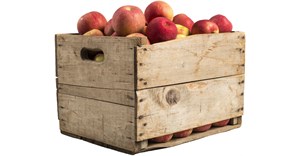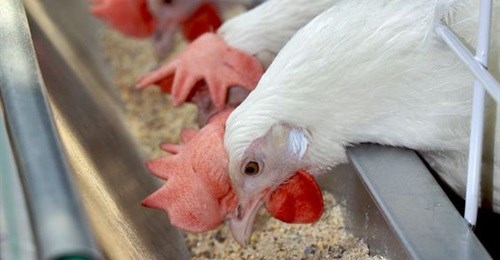
Economic downturn effects on SA consumer behaviour

All of this strongly impacts on consumer purchase behaviour, which in turn directly affects business performance. In good economic times, the consumer is willing to spend more (even borrowing money to do so) because they believe that their economic circumstances will improve. When their budgets are squeezed, and they start to believe that their economic circumstances are likely to get worse, how they choose to spend their money dramatically changes. They become more inclined to delay purchases, trade down, and buy less often.
Amongst those of us who are old enough to remember tougher economic times than we have become used to in the past decade or so, there are some important consumer behaviour change characteristics to look out for:
Consumers don't want anyone to know they're feeling the pinch
They will make trade-offs to keep up appearances. They might share lifts to work in order to be able to afford fashionable clothing (bought from a value for money retailer).
Even consumers who aren't feeling pinched behave erratically
As the hard-pressed change their behavior, so too do the well-off. The well-off see the suffering of the hard-pressed and start making behaviour changes almost for the sake of cutting back rather than to effect a significant cost saving.
Consumers seek and buy good value items
What value means in good economic times is different to what it means in bad economic times. Price cuts (and own brands) become more appealing. Consumers take longer to make decisions about the purchase of durables, and end up buying on price. No-frill products are favoured over those with “all the bells and whistles”.
Consumers take refuge in their homes
Meals and entertainment at home become more frequent. Family becomes more important. Good value home-related items do well in tougher economic times.
Consumer needs become more basic
Flashy, up-to-date and different products make way for dependable, durable, safe bet products. There is a significant shift in all product categories from high risk to low risk options.
Consumers first spend on what they regard as being essentials
Any purchase that could be regarded as being a luxury item, or one that is not necessary right now, gets put off. Essential items are still essential, but they buy the cheaper ones.
Consumers become less loyal
They shop around more looking for the best deal.
The purpose and scope of the Bateleur Khanya Recession Survey
Against this background we set about measuring how the purchase behaviours of economically active SA consumers are being influenced by the current tougher economic times.
We realised that the responses to economic hardship are likely to be influenced by cultural, demographic and socio-economic factors, and that behaviour changes are likely to be different from one consumer segment to the next. Accordingly, in September 2008, we interviewed a large sample of 1000 consumers around the country, thus enabling the ability to analyse the differences between the various consumer segments.
At the outset in the questionnaire we delved into the consumers' general attitudes towards spending money on things that they do not regard as essentials. We have asked exactly the same questions in September 2007, so it was interesting to see the shifts from then to now:
| 2007 | 2008 | % Shift | |
|---|---|---|---|
| I am NOT SPENDING anything on non-essentials | 13% | 20% | +53.8% |
| I am VERY CAUTIOUS about spending on non-essentials | 24% | 40% | +66.7% |
| I am QUITE CAUTIOUS about spending on non-essentials | 26% | 27% | +3.9% |
| I am a LITTLE CAUTIOUS about spending on non-essentials | 24% | 12% | -50% |
| I am a NOT ALL CAUTIOUS about spending on non-essentials | 13% | 2% | -84.6% |
From this it is apparent that there was a considerable degree of consumer caution that prevailed in September 2007 that was already beginning to negatively affect consumer spending. One year later, the shifts are quite dramatic, with 60% of the market now claiming to be Very Cautious about spending money on non-essentials, or not spending any money at all!
We went on to classify the living expenses of consumers into nine categories:
Home and food expenses
Communications expenses
Transport expenses
Credit expenses
Recreation and entertainment expenses
Child rearing expenses
Clothing and personal grooming expenses
Insurance expenses
Investment and savings expenses
Within each of these categories we listed a number expense items and measured the degree to which each one is a candidate for consumers to effect a saving.
Topline findings of the survey
From the survey data we are able to rank the expenditure categories in terms of the extent to which consumers have, or intend to, cut back on spending in each category.
The ranking shown in the table below is from “most likely to cut spending” down to “less likely to cut spending”. The scores indicate the percentage of consumers who indicate that they already have, or intend to cut back on spending in each category.
| Communications expenses | 75.8% |
| Recreation and entertainment expenses | 74.1% |
| Credit expenses | 74.0% |
| Clothing and personal grooming expenses | 66.8% |
| Home and food expenses | 55.4% |
| Transport expenses | 54.0% |
| Child rearing expenses | 48.0% |
| Investment and savings expenses | 40.3% |
| Insurance expenses | 29.3% |
Naturally within each category there are significant differences between the profiles of the people who are more likely and less likely to be reducing their spending.
Within each category there are a number of different expenditure items, each with differing levels of intent to reduce spending. So for example under “Transport Expenses”, 71% (of those who own a car) claim they will “be putting off buying a new car”, versus only 34% who claim they will be “selling their current car and buying a cheaper one”.
The table below shows the top 20 individual expenditure items across all of the categories where most consumers claim that have already, or intend to reduce their spending. Once again, the scores indicate the percentage of consumers (who spend money on that item) who indicate that they already have, or intend to cut back on spending in each category.
| Send more SMSs (and make fewer voice calls) | 87% |
| Holiday in south africa | 83% |
| Buy clothes less often | 83% |
| Cut back on eating out | 80% |
| Use a landline rather than a cellphone | 80% |
| Plan car trips better | 80% |
| Cut back on takeaways | 79% |
| Go to movies less often | 79% |
| Go to pubs and clubs less often | 79% |
| Stay home for the holidays | 78% |
| Consolidate debt | 78% |
| Postpone buying sports and hobbies equipment | 76% |
| Save electricity | 75% |
| Buy cheaper clothing | 74% |
| Cut back on drinking | 73% |
| Don't buy things on credit | 72% |
| Stop gambling | 71% |
| Put off buying a new car | 71% |
| Buy cheaper groceries | 70% |
| Join a lift club | 68% |
Once again within each item there are significant differences between the profiles of the people who are more likely and less likely to be reducing their spending.
The survey provides invaluable insights into the degree to which each of the expense items is prone to negative consumer sales, relative to the other expense items. It diagnoses which segments are most likely to be causing these effects, and provides a useful basis for sketching out a workable marketing strategy to cope with the current economic downturn.
The characteristics of the sample
We used AMPS as the basis for determining the quota controls to apply to the sample. We used the profile of South Africans aged 16 and above who:
Have a household income of R2000 or more; AND
Have a landline at home OR own a cellphone; AND
Have purchased new clothes in the past six months; AND
- Have a bank account OR own an insurance policy
We deemed these people to be “economically active” South Africans. There are a total of 1000 of them in the survey.














